Richard Freeman has been a professional solo fisherman for more than 40 years in his trusty Shark Cat. Spending so much time on the water, his usual companions are dolphins, sharks… and seabirds. In this regular column, Richard shares a few stories about his salty friends.
PIRATES OF THE SKIES: SKUAS, JAEGERS & FRIGATEBIRDS
Jaegers (aka Arctic skuas) travel all the way from the Arctic to pillage and plunder the east coast of Australia. They’re powerful birds with phenomenal endurance, flying high and straight into the wind. They pay no attention to other boats on the water, which can make them pretty hard to spot – you could say they’re the Cootacraft of the skies.
Like true pirates, they prey on other seabirds for a living, using superior eyesight to spot shearwaters or terns feeding on bait schools. They hassle the smaller birds in flight, matching every turn, climbing and diving in aerial dogfights that can last several minutes. It’s usually pretty one-sided, though – the jaeger always wins, forcing the tern or shearwater to disgorge its salty bounty. In fact, the smaller bird often just hands over dinner as soon as the jaeger turns up.
Another feathery pirate is the frigatebird. A massive wingspan enables it to soar like a spy drone high in the sky, appearing almost motionless, before diving on its target. When the unlucky object of its attention drops his fish, the frigatebird then plucks it out of midair. On one occasion, I was watching a jaeger harassing a tern for a fish when a frigatebird zeroed in. The winged foes put on quite a spectacular battle, with the frigatebird eventually coming out on top.
The powerful Antarctic, or south polar, skua, is also an aerial buccaneer. Flocks of them often “storm” and overwhelm terns. They have a special skill of springing vertically out of the water and ascending like a helicopter. It’s fascinating to watch. I once had a skua befriend me for three months, finding me no matter where I was on the ocean. Rather than threaten me like he did other birds, this skua would paddle along behind me as I winched my gear then fly when I needed to motor between my lines. Every morning, after shooting my gear I’d say, “Where’s my little mate today?” Then one day he didn’t show. I missed him, but always knew that when the weather warmed up he’d return south.

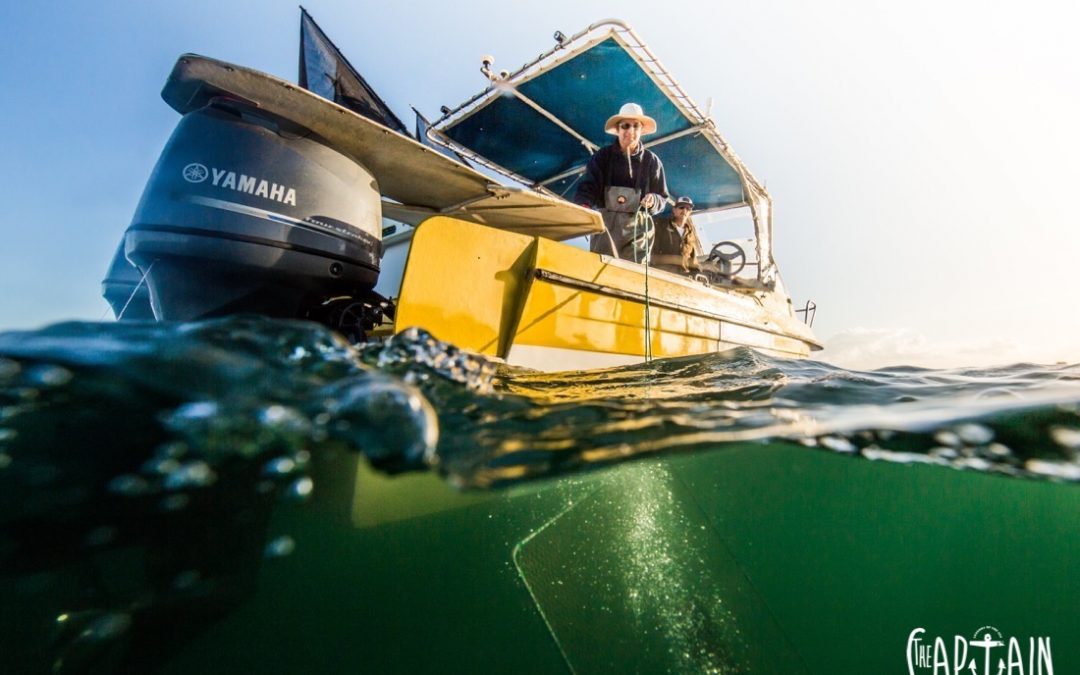
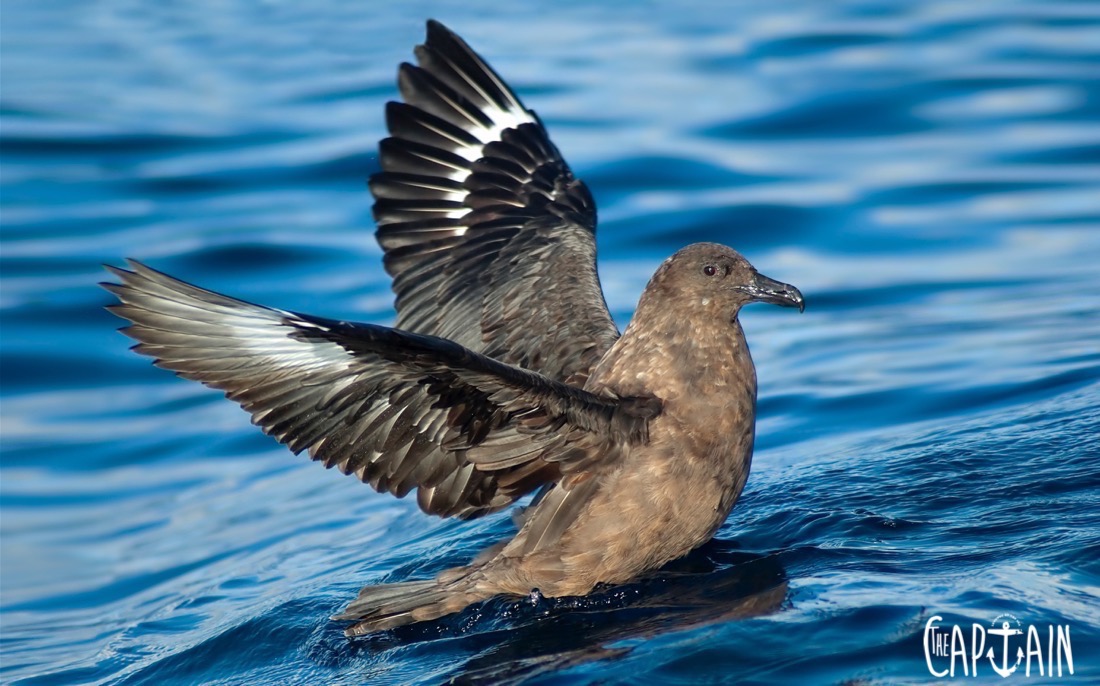
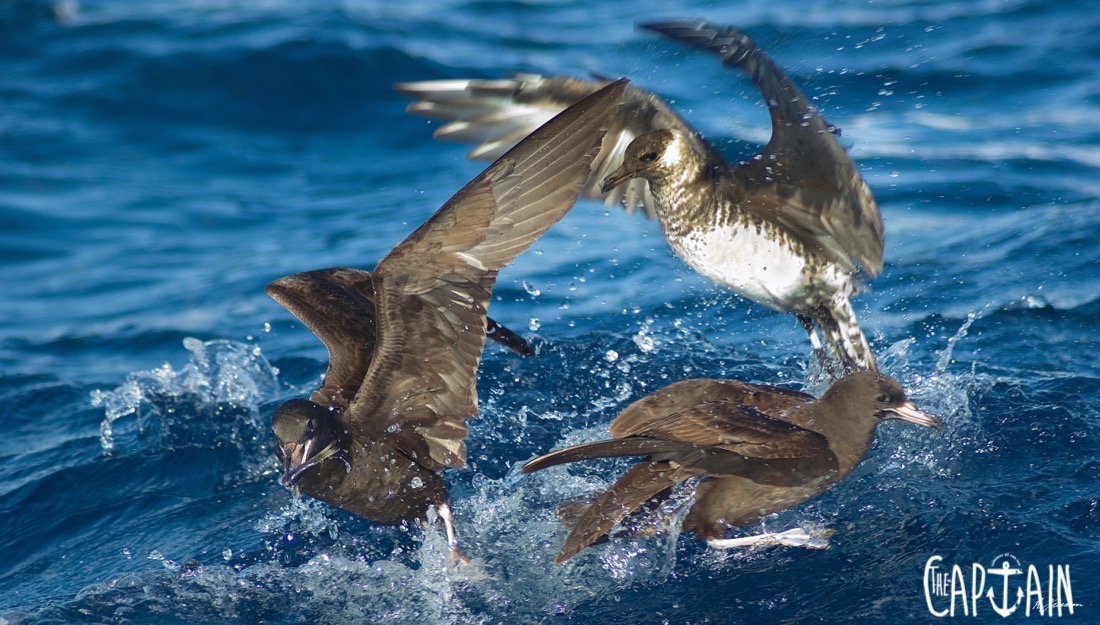
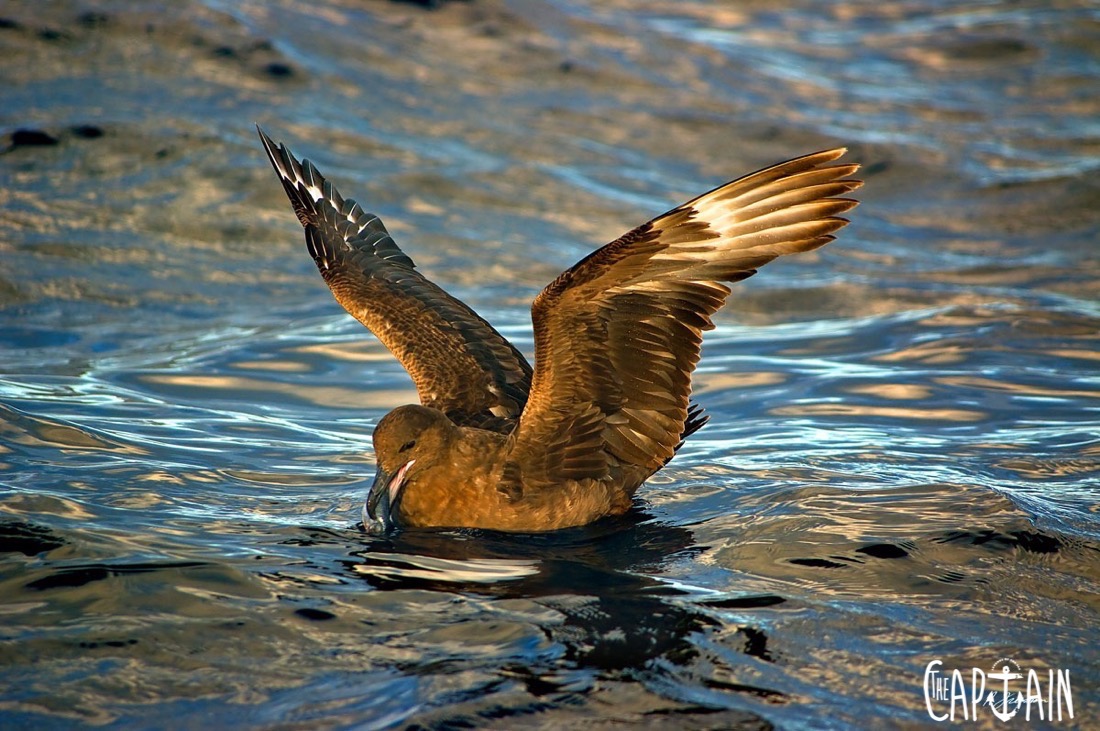
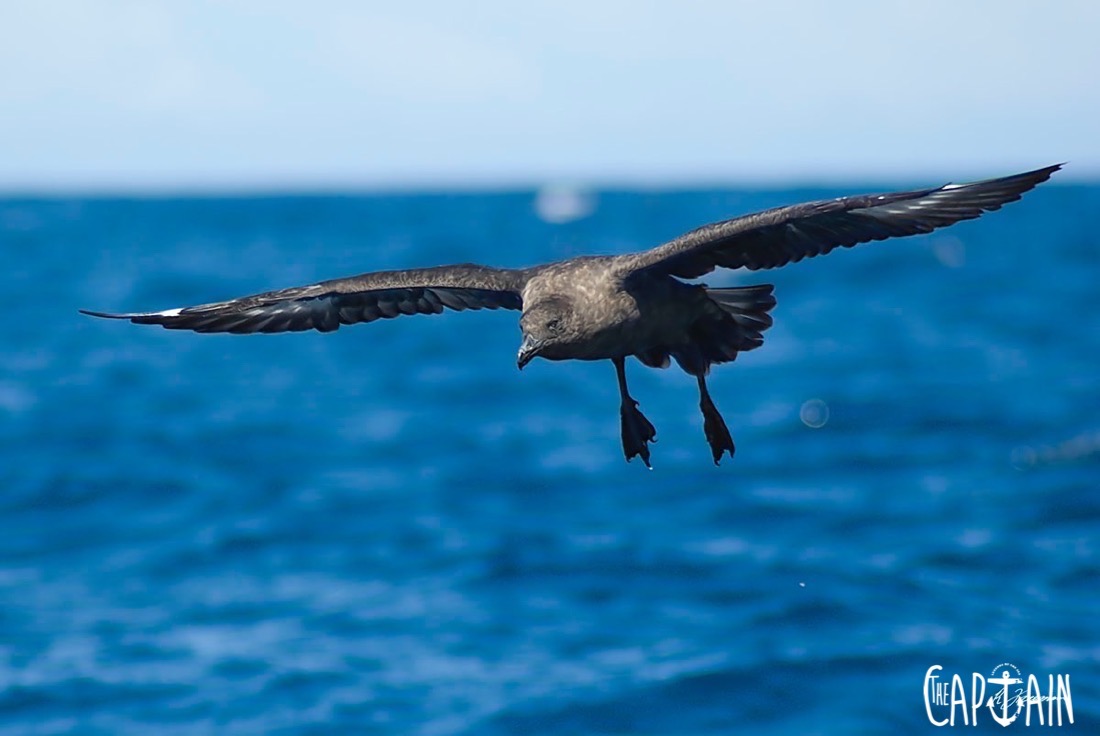
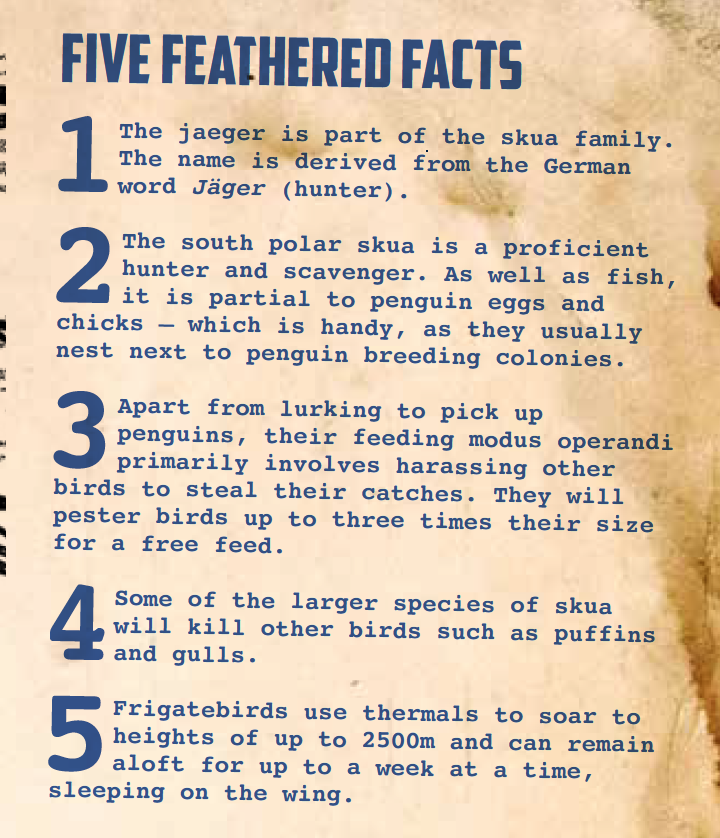
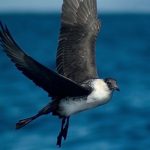
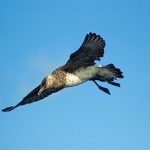
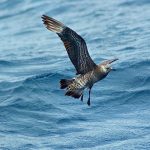
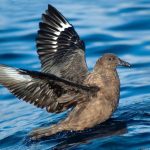

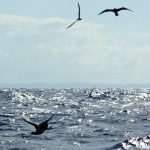
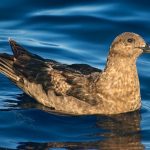
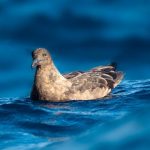
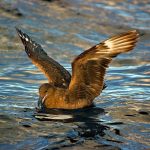
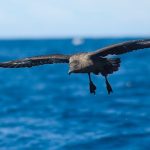
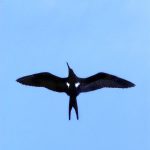
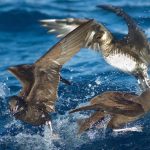
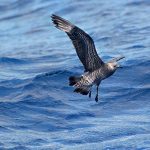
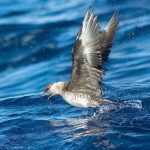
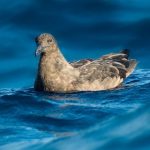
Recent Comments